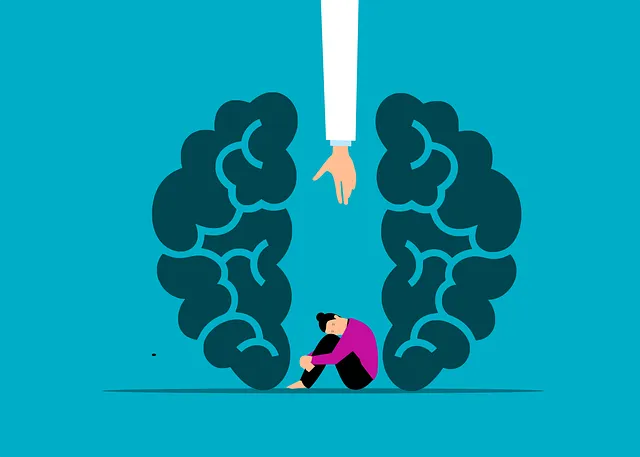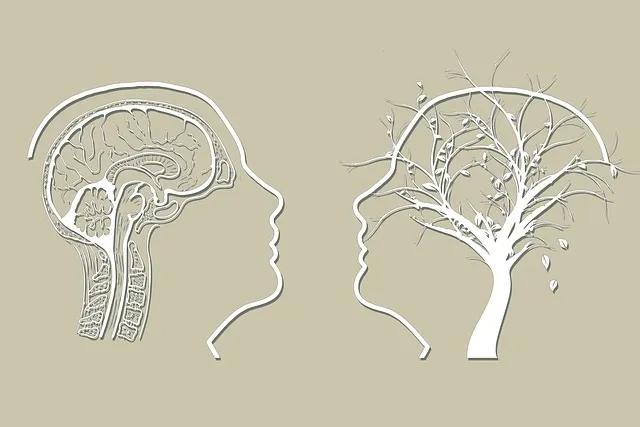Mental wellness journaling, recommended by Littleton Kaiser Permanente behavioral health providers, is a powerful self-reflection tool for personal growth. By documenting thoughts and experiences in a dedicated journal, individuals gain clarity and insights into their emotions, behaviors, and triggers, fostering stress management and improved mental well-being. Regular journaling enhances self-awareness, promotes cultural sensitivity in mental healthcare, and supports the development of Mental Wellness Coaching Programs. Effective techniques include stream-of-consciousness writing and structured reflections. Incorporating just 15 minutes daily can lead to significant personal growth, emotional regulation, and enhanced coping skills, as advocated by Littleton Kaiser Permanente's experts.
Unwind your mind and embark on a journey of self-discovery through mental wellness journaling. This powerful tool, endorsed by Littleton Kaiser Permanente behavioral health providers, offers a sanctuary for processing emotions and cultivating emotional balance. In this comprehensive guide, we’ll explore the benefits of journaling, from enhancing self-awareness to promoting resilience. Learn how to set up your space, master various writing techniques, and seamlessly integrate this practice into your daily routine, all inspired by the expertise of Littleton Kaiser Permanente’s dedicated professionals.
- Understanding Mental Wellness Journaling: A Tool for Self-Reflection
- Benefits of Journaling for Emotional Wellbeing (Littleton Kaiser Permanente behavioral health providers' perspective)
- Setting Up Your Journal: Creating a Safe Space for Self-Expression
- Effective Writing Techniques for Journaling: From Stream of Consciousness to Structured Reflections
- Incorporating Mental Wellness Journaling into Daily Routine: Tips and Tricks
Understanding Mental Wellness Journaling: A Tool for Self-Reflection

Mental wellness journaling is a powerful tool for self-reflection and personal growth, gaining traction as a popular practice among individuals seeking to improve their mental health. It involves documenting thoughts, feelings, experiences, and reflections in a dedicated journal, offering a safe space for introspection. This practice encourages users to explore their emotions, identify triggers, and gain insights into their behaviors, all of which are essential components of the journey towards better emotional regulation.
For those seeking support, Littleton Kaiser Permanente behavioral health providers recommend journaling as a means of self-care. It can be particularly beneficial in managing stress, as documented in various Stress Management Workshops Organization resources. By regularly recording their experiences, individuals can develop a deeper understanding of their mental health and become more adept at implementing effective coping strategies. This practice is also an invaluable component of Mental Health Policy Analysis and Advocacy efforts, as it promotes individual agency and self-awareness, crucial aspects of overall well-being.
Benefits of Journaling for Emotional Wellbeing (Littleton Kaiser Permanente behavioral health providers' perspective)

Journaling has emerged as a powerful tool for emotional wellbeing, according to behavioral health providers at Littleton Kaiser Permanente. By providing a safe and private space for self-reflection, journaling allows individuals to process their thoughts and emotions in a structured yet personal manner. This practice facilitates better understanding of one’s feelings, patterns, and triggers, thereby empowering individuals to take proactive steps towards managing stress and enhancing mental wellness.
Moreover, the act of putting pen to paper can serve as an effective form of therapy, offering a sense of release from the constant barrage of thoughts and concerns that often contribute to anxiety and depression. Behavioral health providers at Littleton Kaiser Permanente highlight how journaling promotes cultural sensitivity in mental healthcare practice by encouraging individuals to express themselves on their terms, fostering open communication and personalized care tailored to diverse needs and backgrounds. This approach supports the development of Mental Wellness Coaching Programs, enabling professionals to guide clients towards sustainable strategies for navigating life’s challenges and cultivating resilience.
Setting Up Your Journal: Creating a Safe Space for Self-Expression

Setting up your journal is a crucial step in creating a safe and nurturing space for self-expression. Choose a location where you feel comfortable and can find quiet time, away from distractions. This could be a dedicated corner of your bedroom or a peaceful spot in nature. Ensure your journal is easily accessible, perhaps in a decorative tray or on a bedside table, to encourage regular use.
At Littleton Kaiser Permanente behavioral health providers, we often recommend incorporating self-awareness exercises into journaling routines. Start by setting aside just 10-15 minutes each day for writing. This consistent practice fosters self-care practices and can even aid in depression prevention. Whether you begin with a simple stream of consciousness or specific prompts, the act of putting thoughts on paper allows for clarity and reflection—a powerful tool in understanding and managing your mental wellness.
Effective Writing Techniques for Journaling: From Stream of Consciousness to Structured Reflections

Effective writing techniques play a crucial role in enhancing the benefits gained from mental wellness journaling. One popular method is to embrace a stream-of-consciousness approach, where individuals allow their thoughts to flow freely onto the page without judgment or structure. This technique encourages introspection and can help uncover hidden emotions and perspectives. On the other hand, structured reflections provide a more organized framework. Journalers can set specific prompts or questions to guide their writing, fostering deeper analysis of experiences and feelings.
For instance, starting with open-ended questions like “How was my day today?” or exploring emotions through “What made me feel happy/sad/angry today?” can initiate meaningful reflection. The key lies in finding a balance—using structured prompts as a foundation while allowing for unstructured thoughts to branch off and create a unique and personal journaling experience, much like the diverse services offered by Littleton Kaiser Permanente behavioral health providers who cater to various mental healthcare needs with cultural sensitivity and coping skills development in mind.
Incorporating Mental Wellness Journaling into Daily Routine: Tips and Tricks

Incorporating Mental Wellness Journaling into your daily routine can be a powerful tool for self-care and personal growth, especially with guidance from Littleton Kaiser Permanente behavioral health providers. Start by setting aside just 15 minutes each day for this practice. Consistency is key; choose a specific time, like morning or evening, to ensure it becomes a habit. Begin with simple prompts like describing your emotions or highlighting three positive moments from the day. Over time, you can introduce more structured practices such as Compassion Cultivation Techniques (CCT) or reflect on your Coping Skills Development journey.
The benefits of journaling include improved self-awareness and enhanced emotional regulation skills. By jotting down your thoughts and feelings, you create a space for introspection and begin to understand patterns that may impact your mental wellness. This practice also allows for the cultivation of self-compassion, which can boost your confidence and resilience. Remember, there’s no right or wrong way; journal in a style that feels authentic to you, whether it’s creative writing or simple bullet points.
Mental wellness journaling, as endorsed by Littleton Kaiser Permanente behavioral health providers, is a powerful tool for self-reflection and emotional wellbeing. By creating a safe space for self-expression through various writing techniques, individuals can navigate their thoughts and emotions more effectively. Incorporating this practice into daily routines offers a game-changing strategy to enhance mental resilience and overall life satisfaction. As you embark on your journaling journey, remember that consistency is key; even brief moments of introspection can have profound effects over time.






